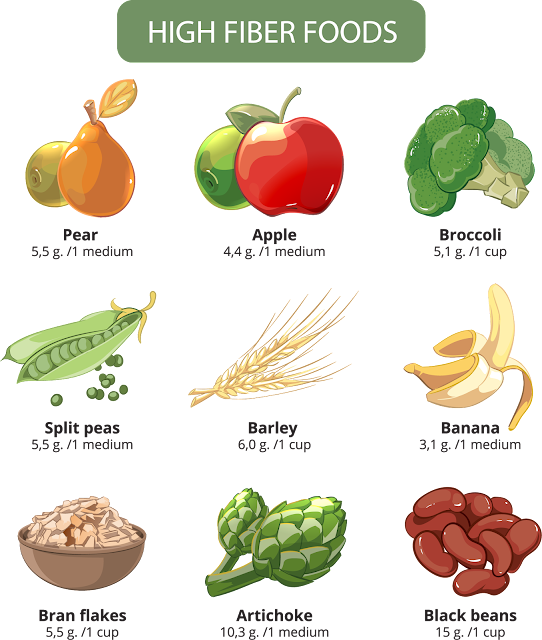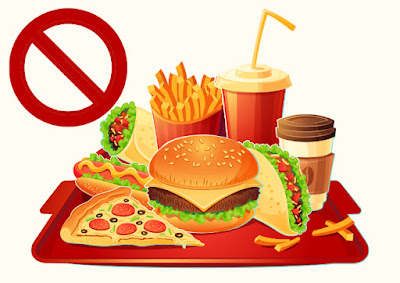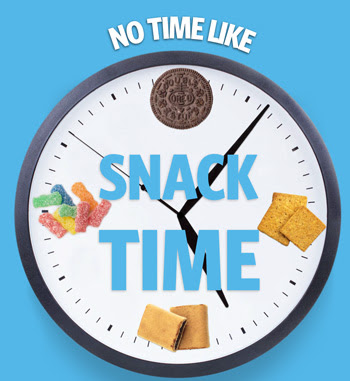You've
probably come here because you want to learn everything there is to know about overeating and how to stop it. So, in
this post, I'll answer that question. Let's get started.
How to Control Overeating
1. Eat Gently
Let's start with the first tip: eat gently. If you're an overeater, this is definitely one of the
most crucial things you can do. It takes some time for your brain to notice
that it's getting full of food. There are two types of receptors at work here.
We have one that is a stretch receptor,
which gives a signal to the brain via the Vagus Nerve to inform it that he's
attempting to get food in there, and then you have your blood glucose levels, which slowly start to rise as well, and it
gets the brain wire signal again after about 20 minutes. So, if you're someone
who eats extremely quickly and consumes a lot of food, you’ll end up overeating
as a result. When someone eats slowly, they savor their food and take their
time chewing it thoroughly. You're not going to get as much food in there, and
by that time, your brain will have realized that there is food in there. It
will make you feel fuller sooner than usual, even if you haven't eaten much.
2. Stay Away from Distractions
Moving on to tip number two, stay away from distractions. So that substances like Ghrelin, Leptin, and CCK can send
signals to your brain. Ghrelin is
the hormone that makes us hungry and also encourages food to be stored in fat
cells for energy. Then, as we get full, we release Leptin and, more
importantly, CCK from our intestines. These signals instruct the brain to stop
eating since we're getting full. These impulses are sent to the brain, but if
you're distracted by your phone, TV, laptop, or other devices, they won't reach
the brain. It won't allow your brain to fully process all of these signals. By
completely appreciating the scenario and situation in which you find yourself.
So smelling the meal, tasting the food, and doing all of these things will
speed up the signaling pathway to the brain. So, maybe, you'll be satisfied
sooner.
3. Planning your Meals
Let's move on to tip number three, which is all about meal planning ahead of time. If you
don't prepare your meals ahead of time and go on a grilled hunger strike,
you'll do what everyone else does: you'll reach for the closest thing that's
close to you and eat it. This is also what will lead to overeating. So, if you
have a meal planned ahead of time, you'll escape the grilling hunger strike.
You've planned your meals, you know when your next meal will arrive, and you're
not going to devour everything in sight during that grilled hunger strike.
4. Stress Relaxation
Tip number four: By eating something, you'll alleviate
the stress that comes with not knowing what you're going to eat. When you're
anxious, you tend to overeat, and when you eat, you receive a dopamine boost, which will make you
feel wonderful. As a result, a never-ending cycle of stress and overeating begins. Because your brain
understands that when you're worried, you get this food and a dopamine rush,
and you feel terrific. This is something that tip number three will assist
with, tip number four. It's also crucial to understand that when we're
stressed, we release cortisol. Our
hunger is increased by cortisol. As a result, we'll be hungrier. We're hungry
for more food. Please remember to practice stress
relaxation techniques as well. So make sure you practice them and are
proficient at them to minimize your stress levels. If you don't know how to
relax, you're missing out. I'll write a new post on it as well.
5. Portion your Foods
Moving on to tip number five, portion control is essential. Remember what we mentioned at the
beginning? It takes your brain around 20 minutes to receive that signal. So
you're satisfied. If you pile a lot of food on your plate and eat it all
quickly, you might not make it to the 20-minute mark. As a result, portion
control is an excellent approach for reducing overeating. Aim to finish a
standard portion size that isn't overly large on your plate. If you pile on a
lot of food, you're more inclined to eat everything on your plate, which leads
to overeating.
6. Eat Fiber-Containing Foods
This ties in nicely with tip six, which is all about fiber.
Fiber should be a part of your daily
diet. According to the British Heart Foundation, we should consume 30 grams of fiber every day. Fiber is a
carbohydrate that takes a long time to digest, so that's 10 grams every meal.
So it lingers in your gut for a while, it gives you that sense of fullness for
longer, and it also has plenty of health benefits.
7. Eat Protein-Containing Foods
This brings us perfectly to number seven, proteins. Proteins and fiber complement
each other well, and proteins have been demonstrated to be the most effective
in reducing hunger. Protein and fiber are both found in some meals. So, for
example, beans and lentils are high in fiber
and protein and can be eaten as a snack or a meal. But keep in mind that
when eating protein-rich meals, such as fish or meat, you should always have a
handful of veggies, salad, or whatever on the side to provide fiber.
8. Try to Avoid Fat-Containing Foods
Moving on to tip 8, what
about fats? We haven't talked about them yet. Meals high in fat have been
proven to boost appetite and make you want to eat more, which is why it's
critical to eat foods that are low in
fat, or if you must eat high-fat foods, eat only a small amount of them.
However, you should attempt to avoid them as much as possible because they will
stimulate your hunger and lead to overeating, which is also true for foods high in sugar. When you eat
sugary meals, such as cookies and biscuits, you're getting a lot of sugar but
no fiber. What occurs is that your insulin
increases and then dips, leaving you feeling
unsatisfied, fatigued, and hungry again sooner, as opposed to fiber and
proteins, which last longer, help you feel fuller for longer, and do not raise
your appetite. So, high-fat and
high-sugar foods should be avoided at all costs.
9. Avoid Snacking in Between Meals
According to tip nine, you should avoid snacking in between meals. You can do your food plan whenever
you like during the day. Either three substantial meals or five little meals
each day are recommended. However, you should avoid snacking in between them.
Snacking will only add to those calories, plus the fact that you're already
overeating.
10. Have Regular Meals
To move on to tip number ten, eat regularly. You'll be more likely to snack and overeat if you
don't eat regularly. As a result, eat regularly. Avoid snacking and eat foods
high in fiber and protein while sticking to the portion sizes we discussed.
11. Get Enough Quality Sleep Every Night
The next point I'd want to talk about is tip 11, which is
all about sleep. You need to make sure you're getting enough good quality sleep. As an adult, you must ensure
that you obtain at least eight hours of
good quality sleep per night. According to studies, not getting enough
sleep puts you in danger of being overweight.
So you're in danger of gaining weight, and if you don't get enough sleep, your cortisol levels are likely to rise.
Remember how we talked about cortisol earlier? Cortisol will boost your
appetite, causing you to want to eat more, snack more, and overeat more. So, in
general, it'll be gaining weight. As a result, you must ensure that you receive
enough sleep.
12. Drink Water
Now for tip number twelve. Water contains no calories.
But the best part is that when we're talking about expanding the stomach and
the Vagus Nerve, remember advice number one: water will do it for you for free
and with zero calories. So by drinking
water throughout the day anytime you're hungry, whenever you normally have
a snack, you can't have a sip of water or something similar, it will cause your
stomach to expand and stretch, making you feel full without the calories and
without overeating. Please don't undervalue the power of water.
Medical Attention of Overeating
As I
indicated at the beginning of this post, there are a few possibilities to be
cautious of while seeking medical help for overeating. So I think the best way
to handle this right now is to simply go over them again.
1. Any Pain in Stomach Region
So, first
and foremost, if you experience any pain
in your stomach region after or before eating, or any other heartburn or indigestion symptoms, you
should seek medical attention.
2. Vomiting Up after Eating
Second,
if you ever feel like vomiting up after
eating or are really throwing up after
eating. This necessitates immediate medical attention because it puts you
at risk of not absorbing the food and nutrients that are present, as well as
making you extremely weak and causing other difficulties. As a result, you
should speak with your healthcare provider about this as well.
3. Eating too much
The
final point I'd like to make is when you're eating too much and feeling guilty about it. There could be other
reasons why you're feeling this way. However, if you are experiencing any
symptoms, please contact your healthcare provider. They have your best
interests at heart, and it's something that should be investigated further.
Please consult with a healthcare expert about this.
4. Weight Loss
The
fourth topic I'd like to touch on is weight
loss. If you're losing weight and you're not trying to lose weight, you're
not on a diet, and you're eating a healthy balanced diet, but you're still
losing weight and your clothing is
getting looser and looser on you, there's a reason for it. This is
something that needs to be looked into and you should speak with your
healthcare professional about it.
5. Swallowing
Another
item to address is any problems swallowing.
If you're having any difficulty swallowing at all, you should speak with your
healthcare professional about it.
6. Weight Gain Consistently
Finally, there's weight gain. If you're consistently gaining weight, no matter
what you do, you're still gaining weight and finding it difficult to lose it.
Then you should absolutely speak to a healthcare expert about it for additional
support. There is also a BMI calculator
that can be used to determine your weight status. It's quite simple to use. You
simply enter your weight, height, and gender, and it calculates and informs you
of what weight category you fall into and how healthy you are. So I strongly
advise you to look into it. So it appears that we've run out of time once more.
That concludes this post; remember, you're amazing, and I'll see you next time.

















0 Comments